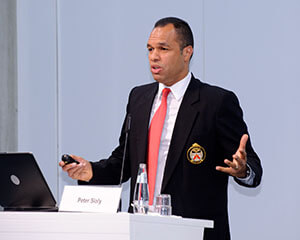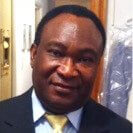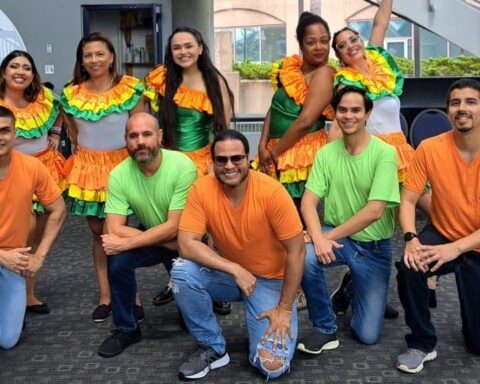From the fight against radicalization and professional roadblocks to the question of whether a Black police chief would have any impact in Toronto, here are some recent headlines in the African-Canadian diaspora media.
Radicals Have No Chance With Our Youth: Toronto’s Somali Community
Somalis in Toronto are not taking chances. Neither will they take a wait-and-see approach.
Tired of reports of how Jihadist terrorists have successfully recruited African youths in the U.S. state of Minnesota, Kenya and several European countries, community activist Jibril Muhammed told the African World News, “We cannot pretend that our children in Canada could not be influenced by these crazy people who call themselves Muslims. We are aware of how terrorist groups like Al-Shabaab and ISIS have poisoned the minds of innocent Somali and other African youths everywhere they can find them.”
“Canada has been good to us and any terrorist trying to harm this country has no chance to use our kids against it.” – Mohammed Abdi, community activist
Muhammed, who is also a former coordinator of many Somali community groups, said several organizations and individuals in the Somali community are working with the RCMP, the police and their parliamentarians in the Toronto area. “We have to protect our children against these bad eggs,” he says.
Another community activist, Mohammed Abdi, concurs. “Canada has been good to us and any terrorist trying to harm this country has no chance to use our kids against it. On my part, I am constantly educating my teenage children about what is the right Islam,” he explains. “I tell them always that the ISIS and Boko Haram and Al-Shabaab people they see on television are practising the wrong Islam.”
 Will a Black Police Chief Really Make a Difference?
Will a Black Police Chief Really Make a Difference?
Writing in Pride News Magazine, educator and community organizer Ajamu Nangwaya says that simply having a Black police chief at the helm in Toronto is no cure for the poor relations between the force and the city’s African-Canadian community.
The organizer with the Toronto-based Network for the Elimination of Police Violence argues it’s like saying that the soured relations between American Blacks and the police would improve just because a Black president, Barack Obama, was elected the president of the United States.
“For a sobering dose of reality about race, class and policing, we may look at the behaviour of the police in major American cities that have or had African-American police chiefs or at police violence in global South countries such as Nigeria, South Africa, Brazil, Haiti, Kenya and Jamaica.” – Ajamu Nangwaya, educator and community organizer
He adds: “For a sobering dose of reality about race, class and policing, we may look at the behaviour of the police in major American cities that have or had African-American police chiefs or at police violence in global South countries such as Nigeria, South Africa, Brazil, Haiti, Kenya and Jamaica,” stressing that police-versus-society issues are institutionalized matters.
Taking a swipe at those who are now calling for either deputy chiefs Peter Sloly (pictured to the left) and Mark Saunders (two African-Canadians in the Toronto Police Service) to replace the outgoing chief, Nangwaya doubts that any police office that has successfully gone up the ladder would not belong to the same systemic ideology from which they emerged. “To what extent are we realistically expecting an African-Canadian police chief to be more committed to fighting institutional racism than a white one? Deputy Chiefs Peter Sloly and Mark Saunders have not made it this far up the organizational ladder, because of their tendency to ‘comfort the afflicted and afflict the comfortable,’” he writes.
 Why African Professionals Make Career Advancements Later in Canada
Why African Professionals Make Career Advancements Later in Canada
Many new African immigrants to Canada are often surprised to find themselves shut out of jobs in their professional disciplines.
So, not surprisingly, many African graduate and post-graduate degree holders end up driving taxis or taking menial jobs to make a living. The question is, why do newly arrived African professional immigrants to Canada make inroads to their chosen professions late?
Dr. Adeleye King (pictured to right), executive director of the Canadian Institute of Leadership and Development (Africa), told African World News the reasons are both professionally demanding and personal. He says when African professionals first come to the country as immigrants, they are shocked to learn that they must do more learning in their fields, “because Canada requires a different level of certification and designation from the ones in Africa.”
“Certain professions like engineering, for example, require a designation before you can be accepted for work as an engineer. It’s different in Africa where you are required only to be certified,” King explains. “[T]he same applies to other professions.”
King says that personal issues also prevent African professionals from making quick inroads into the Canadian marketplace. One issue is that many don’t do enough research about Canada before coming into the country. “If they did,” he says, “they would know exactly the type of skills needed to survive with their professional know-how.” He says it’s important to plan ahead before immigrating and, once here, “never lose concentration of why [you] are here, don’t straddle your life between here and the one you just left.”
 Education Funding Cut May Negatively Impact African Nova Scotians
Education Funding Cut May Negatively Impact African Nova Scotians
Recent cuts in funding to the Council on African Canadian Education (CACE) by Nova Scotia’s ministry of education may severely affect learning standards for Africans in the province, says the organization’s chairwoman Alma Johnston-Tynes.
“The lack of staff and resources will have a detrimental impact on CACE’s ability to identify and meet the needs of African Nova Scotian learners.” – Alma Johnston-Tynes, Council on African Canadian Education
“The lack of staff and resources will have a detrimental impact on CACE’s ability to identify and meet the needs of African Nova Scotian learners and to fulfil its mandate under the Education Act, which is to monitor and continually analyze the policies of the Department of Education with respect to the needs of Black learners,” she said in a statement reported by the African Nova Scotian News.
The axe comes as education minister Karen Casey (pictured to left) announced that staff funding to CACE will no longer continue because of an audit that, “raised questions about the body’s governance and financial situation.” Casey described the findings as “very troubling.”
CACE was set up in 1996, after race riots in 1989, and following findings that not enough attention was being paid to improving standards for African and Black school children in the province. The council’s focus was to advise the education ministry on how to improve learning in African Nova Scotian communities, after a recent statistic showing that while reading comprehension test scores for third-graders in the Halifax regional school board was 70 per cent, it was particularly lower for African students at 54 per cent.
Immigrants Change Diet After Arriving in Canada
A report by Statistics Canada cites studies that show immigrants who change their traditional diet after arriving in Canada tend to become less healthy later. Overall, the studies show, newly arrived immigrants to Canada had lower mortality rates than the Canadian-born, and also reported lower levels of fair or poor health. Those mortality rates tended to rise, the further removed immigrants were from their arrival in Canada, as did the reported levels of fair or poor health.
Tanzanian-born Toronto resident Dr. Wasira Bokore, a family physician, told African World News that generally the African immigrant succumbs to, “a new environment where time is limited for cooking your meals and begins to adopt new eating habits, eating burgers, fast foods and fatty foods and these things are not good for your health.” She adds that matters are made worse when, “an exercise regimen is absent in one’s daily existence.”
Peter Uduehi is a journalist and publisher of the African World News in Toronto.
Peter Uduehi is a journalist and currently publisher and editor of African World News in Toronto. Versed in African and American politics, he has spent most of his adult years in the USA where he studied journalism and later worked as reporter and news editor for several US media outlets before emigrating to Canada 10 years ago.





